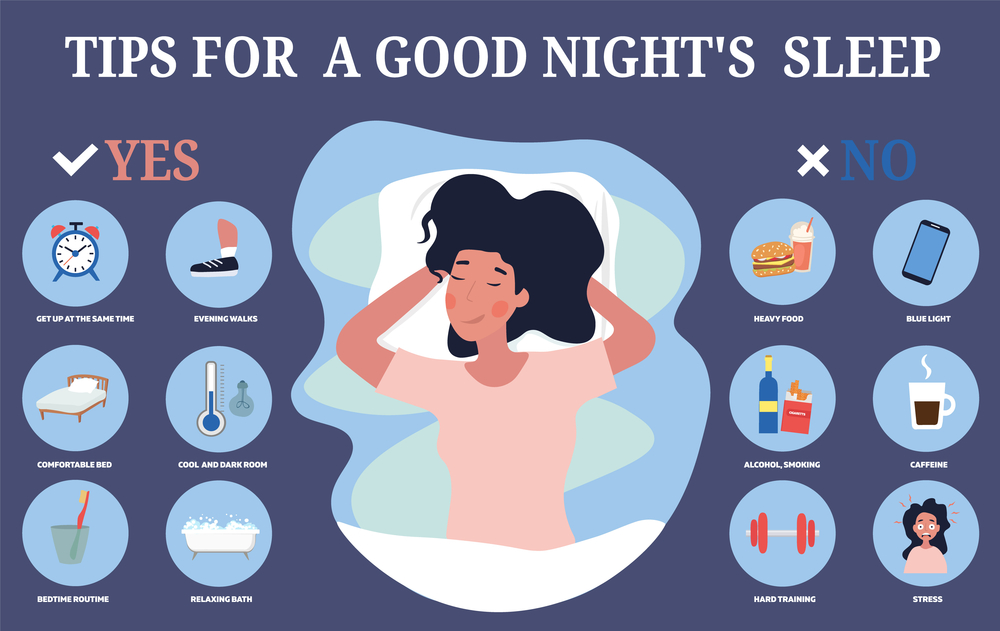Sleep is fundamental to our health, yet many people don’t know enough about it. When beliefs can be formed from folklore and outdated advice, it’s no wonder that myths surrounding sleep have been perpetuated for centuries. It’s time to evaluate some common assumptions and put the brakes on any misconceptions – so let’s take a closer look at how we might better understand sleep habits by exploring what science tells us about its importance in living a healthy lifestyle.
Overview of common sleep myths and the truth behind them
Many of us have been fed various sleep myths over the years that we take for granted as fact. For instance, you may have heard that you need eight hours of sleep every night to function optimally or that having a nightcap helps you sleep better. However, these are just a few examples of sleep myths. This article aims to dispel some common misconceptions and provide evidence-based insights into what helps and hinders a good night’s rest. From the importance of keeping a consistent sleep schedule to the dangers of using electronics before bed, you’ll gain a deeper understanding of the habits that can lead to a restful and restorative slumber.
Myth 1 – Caffeine before bed keeps you awake
For ages, people have been told that caffeine consumption before bed is the ultimate sleep killer. However, what if we told you this may not be entirely true? While caffeine is a stimulant that keeps the mind and body alert, it’s not necessarily a surefire way to ruin sleep. The effects of caffeine differ from person to person and are highly dependent on the quantity and frequency of consumption – to name just a few factors. So, don’t throw away your evening cup of tea just yet – you might get away with a nice, strong cup of coffee before bed.
Myth 2 – You need 8 hours of sleep each night
For years, we’ve heard the myth that we need 8 hours of sleep each night to function properly. But the truth is, this “one-size-fits-all” rule doesn’t work for everyone. Studies have shown that individuals have different sleep needs based on age, genetics, and lifestyle. While some people may feel refreshed after 8 hours, others may feel groggy and unproductive. It’s important to pay attention to your body’s signals and adjust your sleep habits accordingly. So, don’t stress about reaching that elusive 8-hour goal, and instead, focus on getting the right amount of quality sleep that works best for you.
Myth 3 – A hot bath before bed helps with sleep
For many of us, a relaxing hot bath before bed is the ultimate way to unwind and prepare for a good night’s sleep. However, is there any truth to the myth that a hot bath can help us fall asleep faster and improve the quality of our slumber? Surprisingly, the answer is yes! According to sleep experts, soaking in a warm tub for about 20-30 minutes before bedtime can raise our body temperature, triggering a cascade of natural neurochemicals that help us feel calm and drowsy. Plus, the warm water can ease muscle tension and promote relaxation, setting the stage for a peaceful and restorative night of sleep. So, draw a cozy bath and drift to dreamland feeling refreshed and rejuvenated.
Myth 4 – Watching television in bed will help you fall asleep
Many of us are guilty of indulging in a late-night television binge session, but does it help us fall asleep? Myth four suggests that watching television in bed can help us drift off into dreamland, but this may not necessarily be true. While it may seem relaxing to snuggle up with your favorite show, the blue light emitted by electronic devices can suppress the production of melatonin, the hormone that regulates sleep. Additionally, the excitement or emotional tension in the show can keep our minds awake and alert, making it more difficult to fall asleep. So next time you reach for the remote before bed, consider reading a book or enjoying calming music.
Myth 5 – Drinking alcohol helps you sleep better
Many believe having a glass of alcohol before bedtime is a great way to catch some quality zzzs. However, this couldn’t be further from the truth. While alcohol does have sedative effects, it doesn’t improve the quality of your sleep. It can disrupt your sleeping patterns and make you groggy the next day. Alcohol has been known to cause snoring, increased breathing problems, and sleep apnea. So, if you hope to wake up feeling rested and refreshed, skip the nightcap and opt for a cozy cup of tea instead.
To wrap up, it’s essential to remember the common sleep myths presented here and the truth behind them. Caffeine before bed does not contribute to a healthy night’s sleep; however, you do not necessarily need 8 hours of sleep each night to feel rested and alert. A hot bath beforehand may help relax muscles but should not be used as an alternative remedy to prescribed medication. Watching television in bed may seem tempting, but it could disturb sleeping patterns. Finally, drinking alcohol before bed can have uncomfortable side effects, such as disrupted sleep and nightmares. Knowing these myths and their reality is key to avoiding potential unhealthy practices associated with getting good restful sleep.





